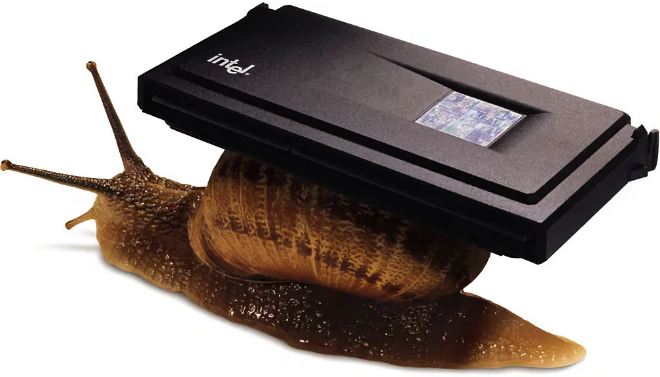Complete nonsense / Chicken little journalism. This investor call happened last July:

 macdailynews.com
macdailynews.com
Tuesday, February 9, 2021 1:03
Intel has announced that it’s pushing back the release of its 7nm chips yet again, this time until late 2022 or early 2023 after it identified a “defect mode” that resulted in “yield degradation.”
Mike Peterson for AppleInsider:

Apple’s M1 is the first personal computer chip built using cutting-edge 5-nanometer process technology Apple’s M1 is the first personal computer chip built using cutting-edge 5nm process technology and is packed with 16 billion transistors, the most Apple has ever put into a chip. It features the world’s fastest CPU core in low-power silicon, the world’s best CPU performance per watt, the world’s fastest integrated graphics in a personal computer, and breakthrough machine learning performance with the Apple Neural Engine. As a result, M1 delivers up to 3.5x faster CPU performance, up to 6x faster GPU performance, and up to 15x faster machine learning, all while enabling battery life up to 2x longer than previous-generation Intel-hobbled Macs.
MacDailyNews Take: Intel is a broken company. Late to 10nm chips. Way too late to 7nm. Not even thinking of 5nm. Know they’ll never be able to get to 3nm this decade even with 9 years left to go.
Apple cannot dump Intel garbage out of Macs soon enough!

Beleaguered Intel delays its 7nm chips yet again, now expected in 2022 or 2023
Intel has announced that it's pushing back the release of its 7nm chips yet again, this time until late 2022 or early 2023 after it…
Tuesday, February 9, 2021 1:03
Intel has announced that it’s pushing back the release of its 7nm chips yet again, this time until late 2022 or early 2023 after it identified a “defect mode” that resulted in “yield degradation.”
Mike Peterson for AppleInsider:
In an earnings call on Tuesday, outgoing Intel CEO Bob Swan said the chipmaker has discovered a “defect mode” in its 7nm production process.
“The company’s 7nm-based CPU product timing is shifting approximately six months relative to prior expectations,” Intel said in a statement. “The primary driver is the yield of Intel’s 7nm process, which based on recent data, is now trending approximately twelve months behind the company’s internal target.”
The company now expects to see initial shipments of its first 7nm chip — a CPU for a client — in late 2022 or early 2023.
The new delay echoes manufacturing problems that the company has faced many times in the past. Recently, in 2019, Intel finally got its 10-nanometer production process on track after three years of delays. The new delay also represents the second time that Intel’s 7nm production has been snarled.

Apple’s M1 is the first personal computer chip built using cutting-edge 5-nanometer process technology Apple’s M1 is the first personal computer chip built using cutting-edge 5nm process technology and is packed with 16 billion transistors, the most Apple has ever put into a chip. It features the world’s fastest CPU core in low-power silicon, the world’s best CPU performance per watt, the world’s fastest integrated graphics in a personal computer, and breakthrough machine learning performance with the Apple Neural Engine. As a result, M1 delivers up to 3.5x faster CPU performance, up to 6x faster GPU performance, and up to 15x faster machine learning, all while enabling battery life up to 2x longer than previous-generation Intel-hobbled Macs.
MacDailyNews Take: Intel is a broken company. Late to 10nm chips. Way too late to 7nm. Not even thinking of 5nm. Know they’ll never be able to get to 3nm this decade even with 9 years left to go.
Apple cannot dump Intel garbage out of Macs soon enough!

